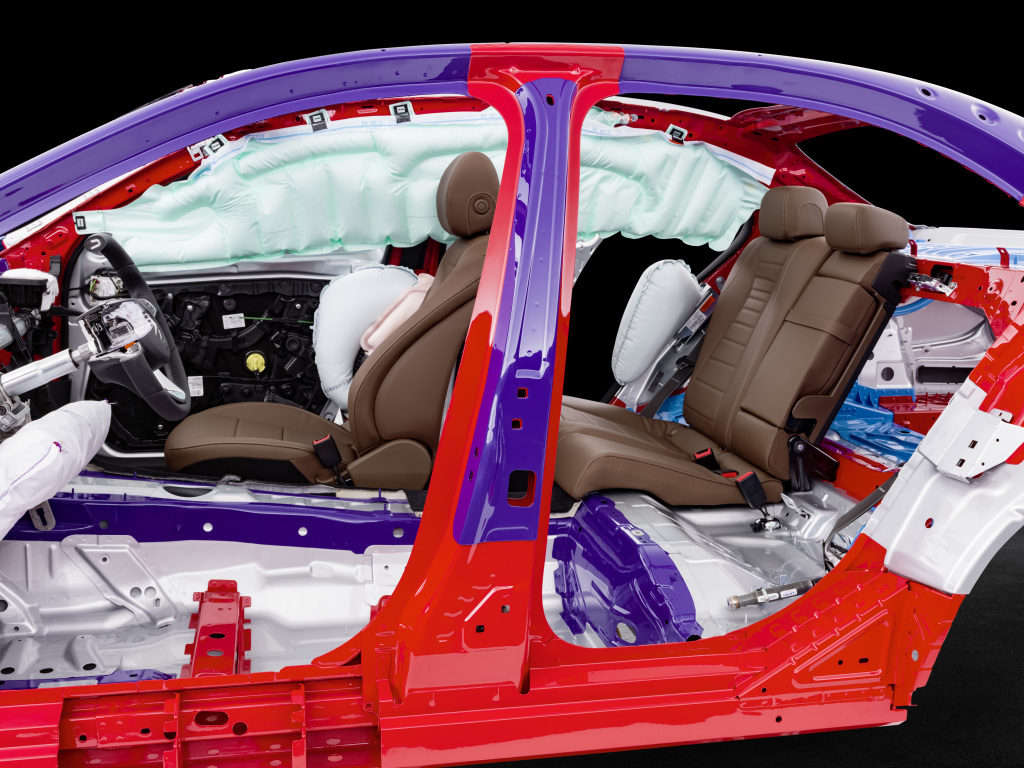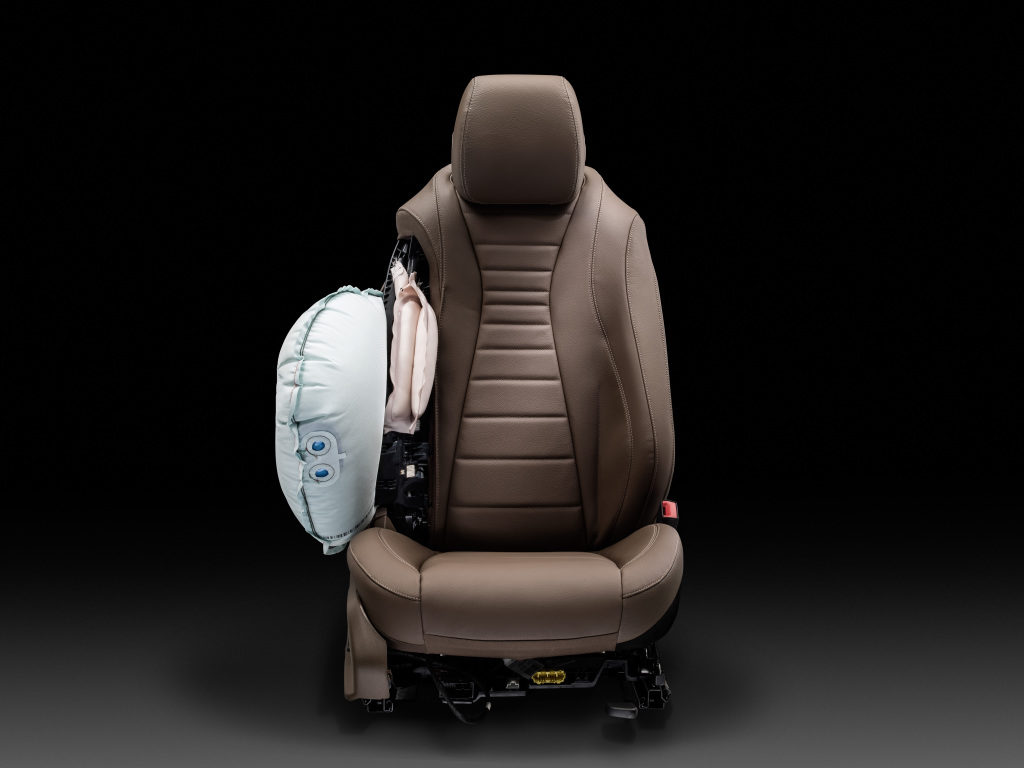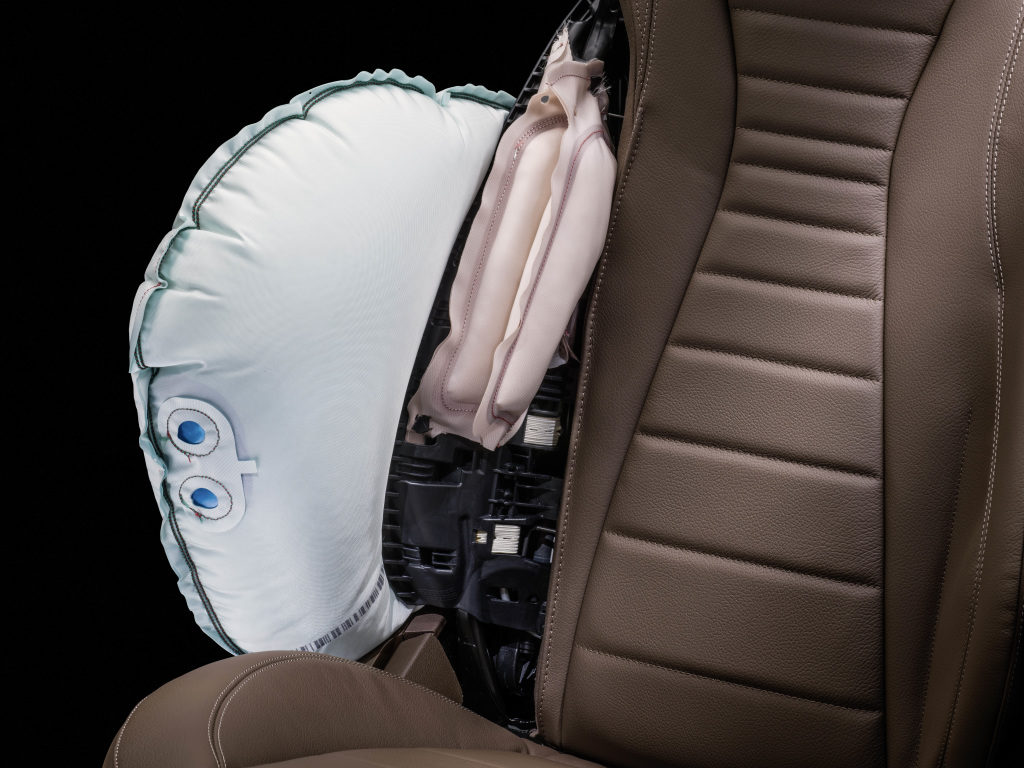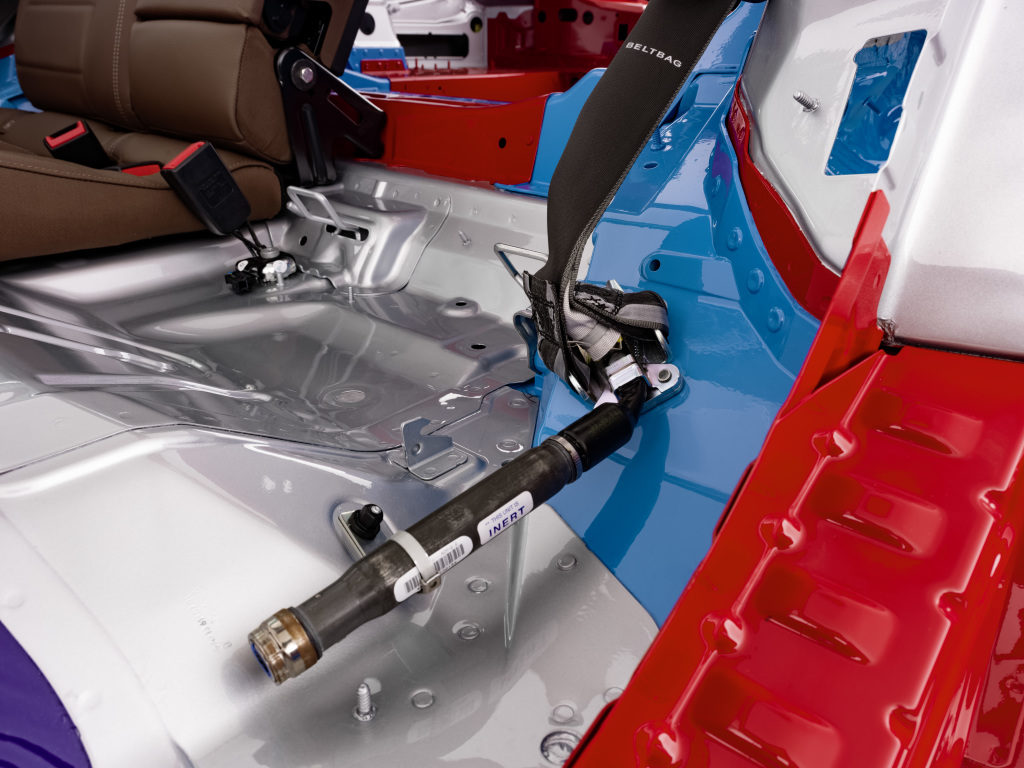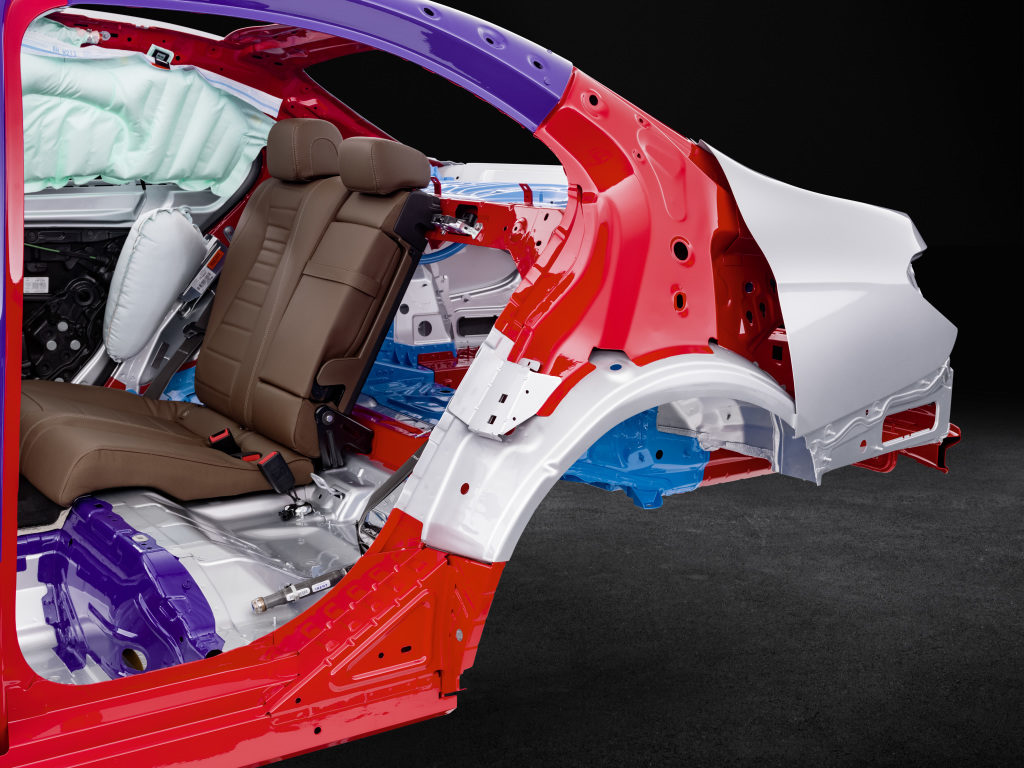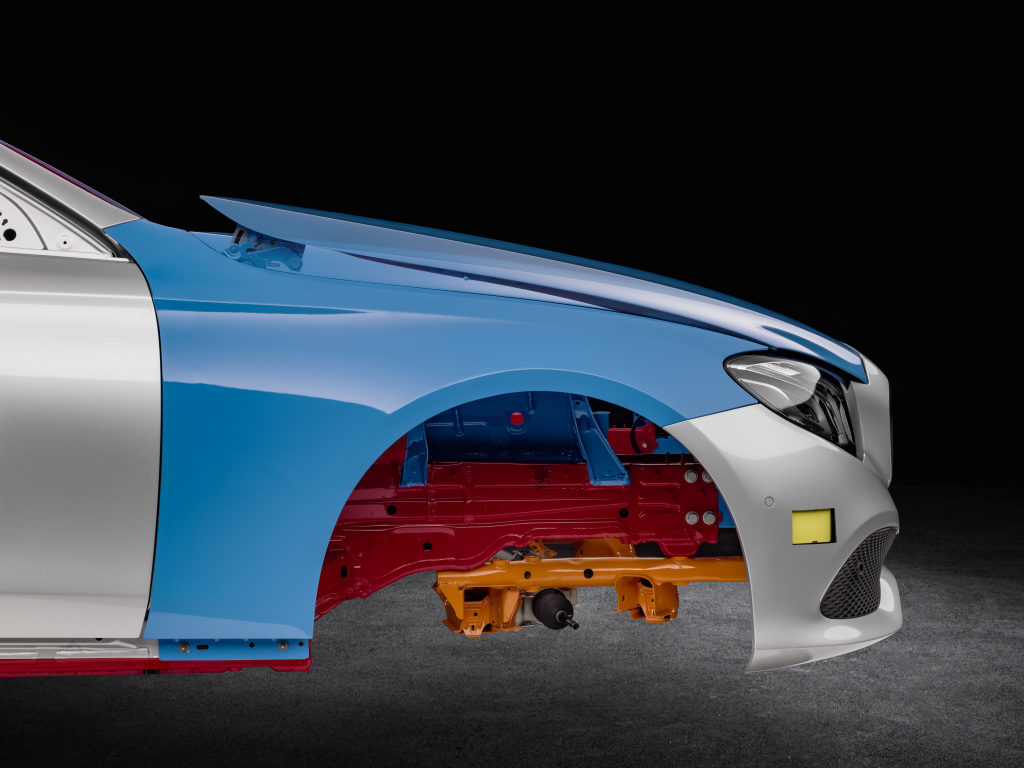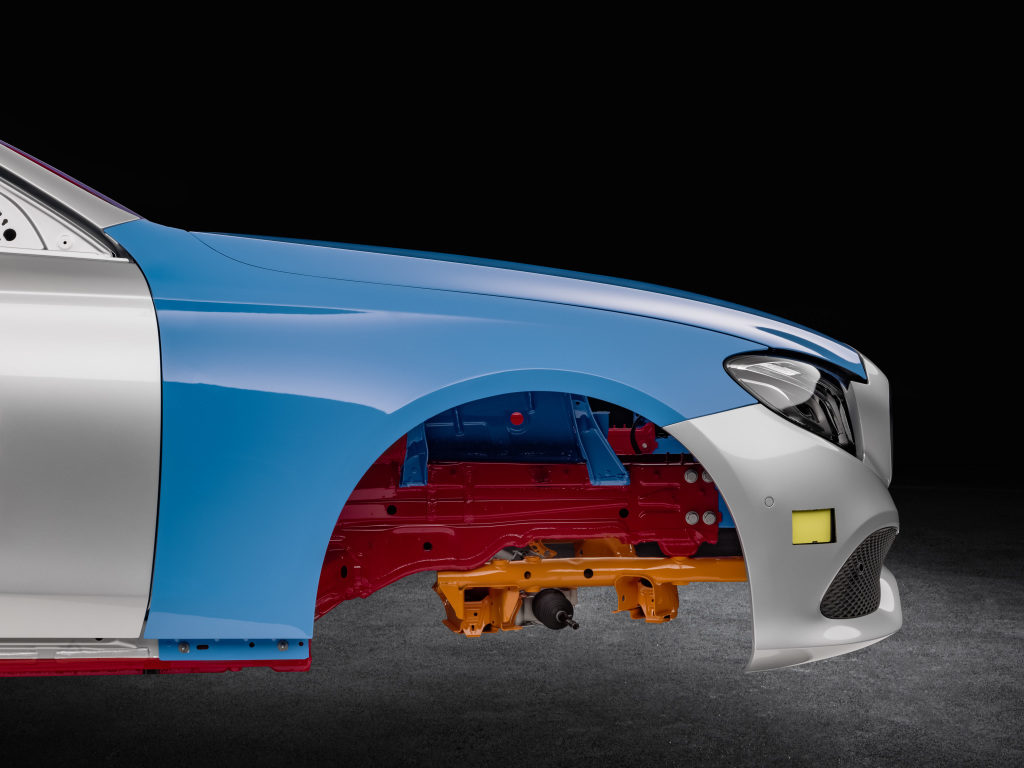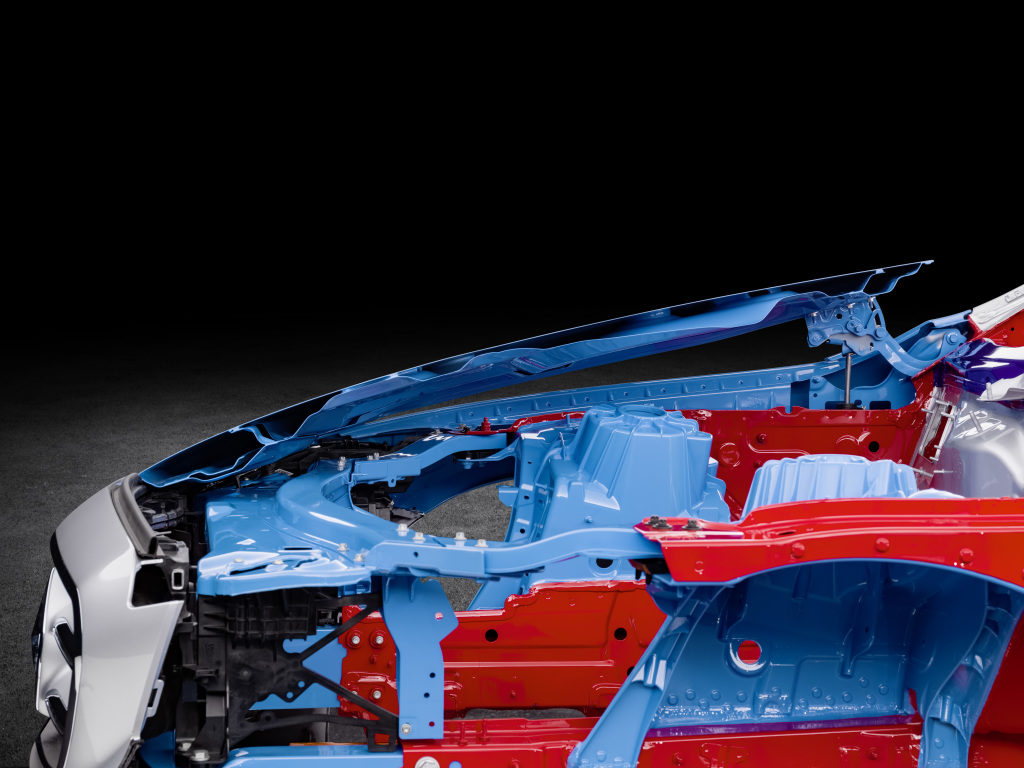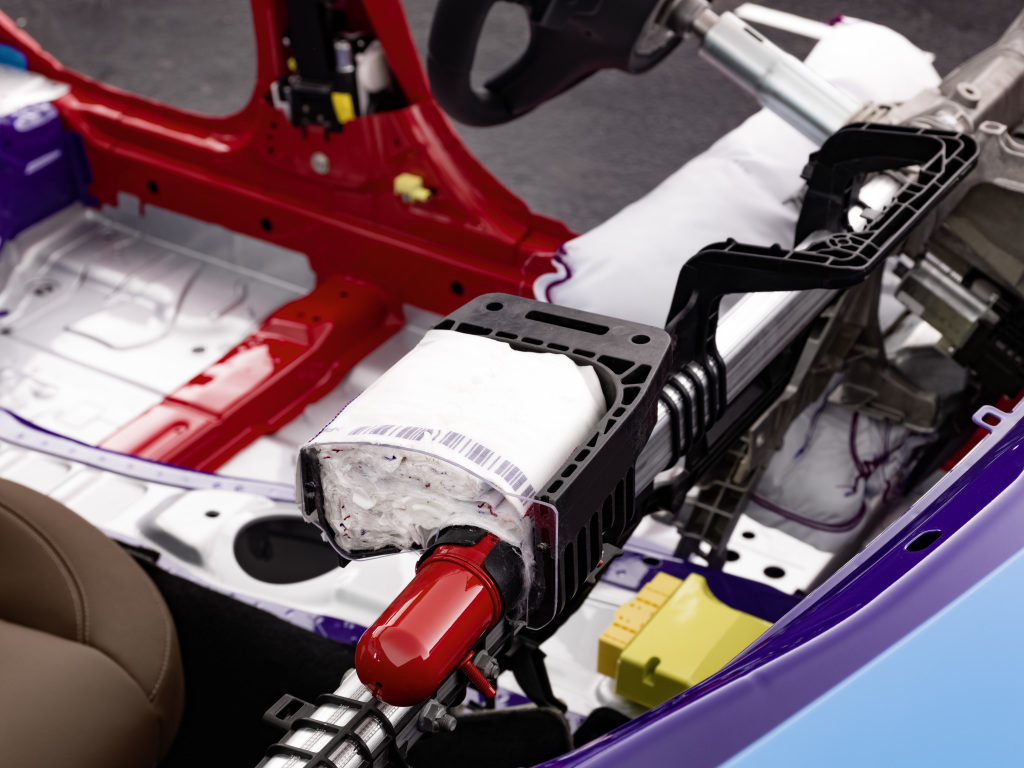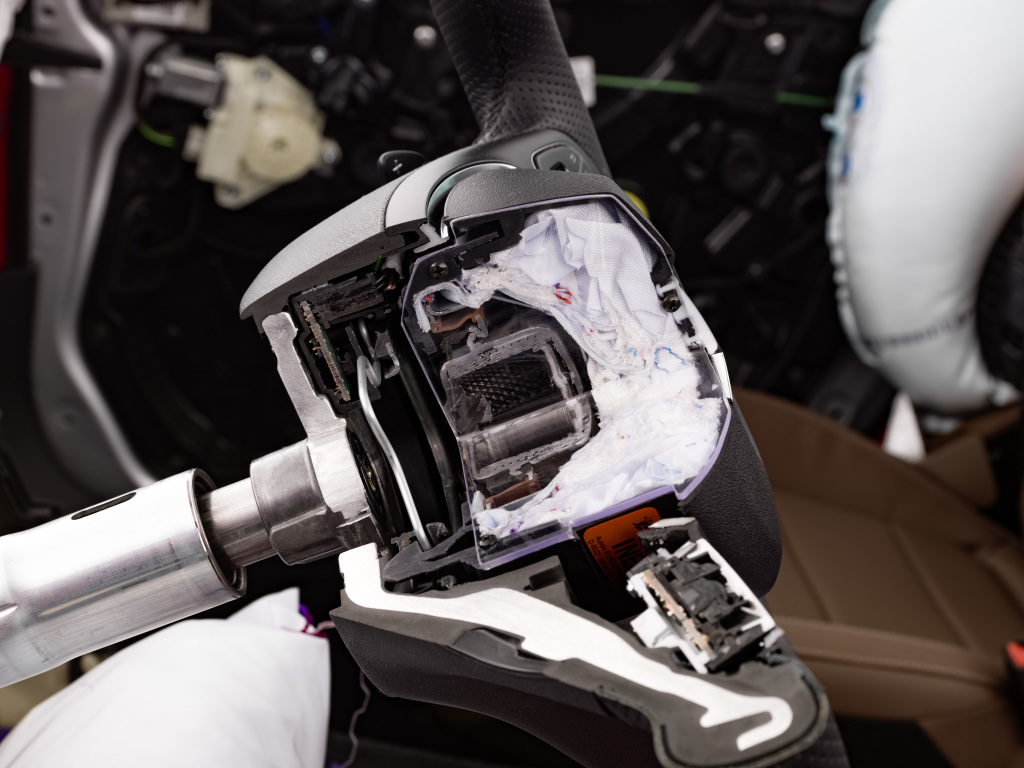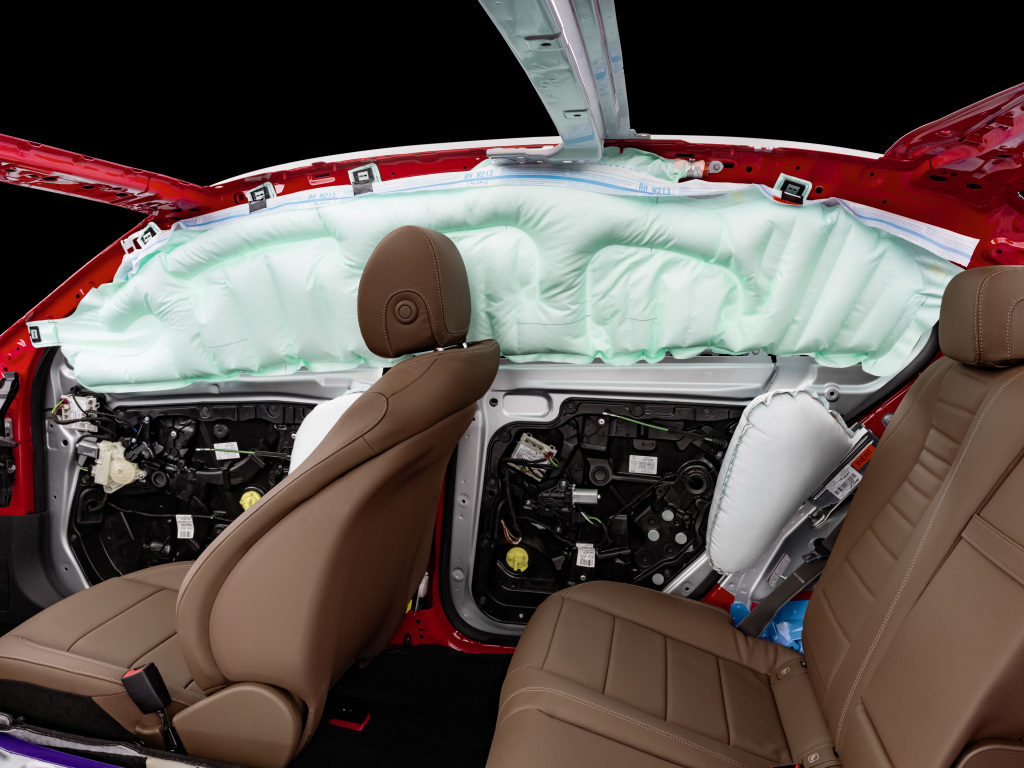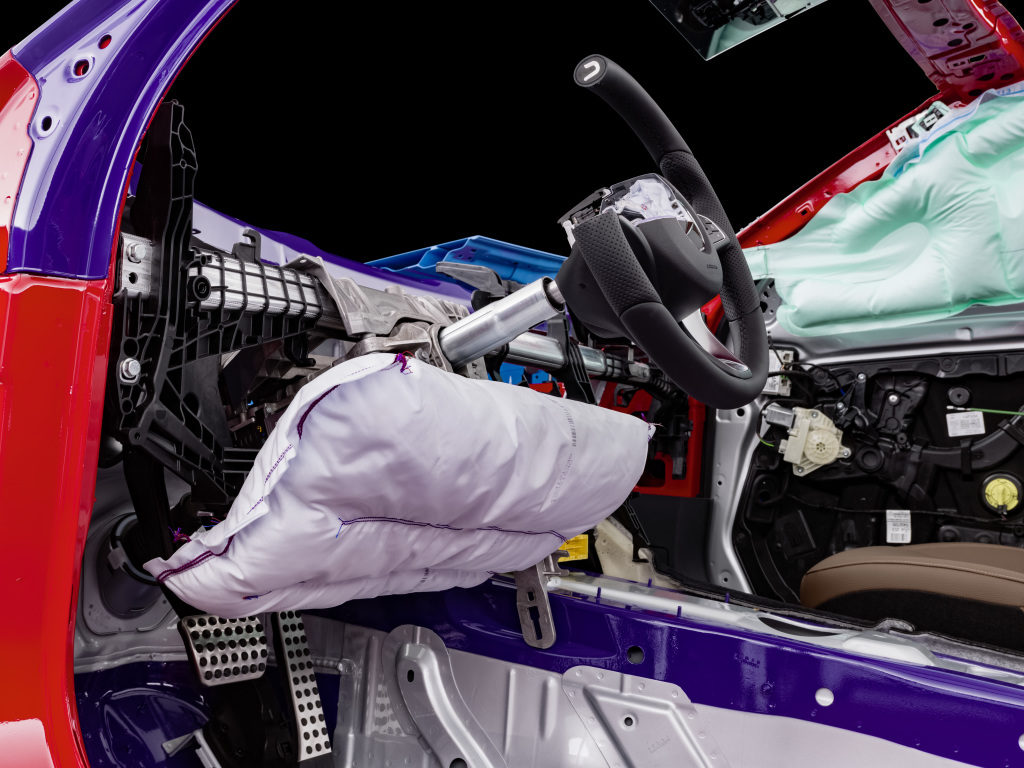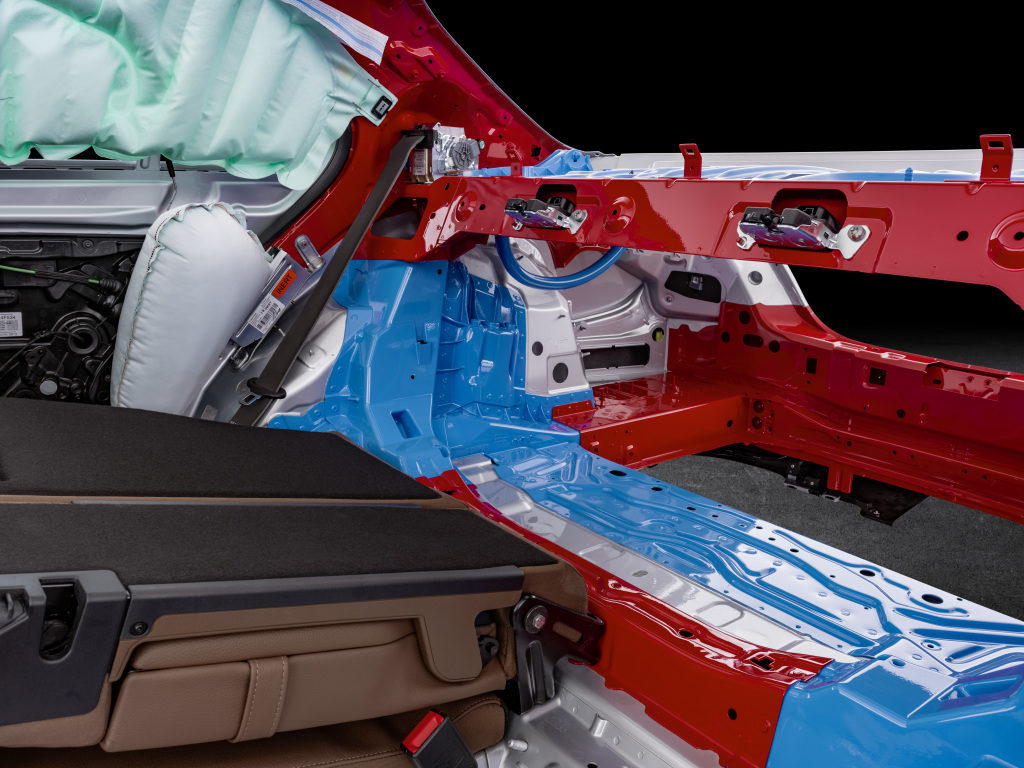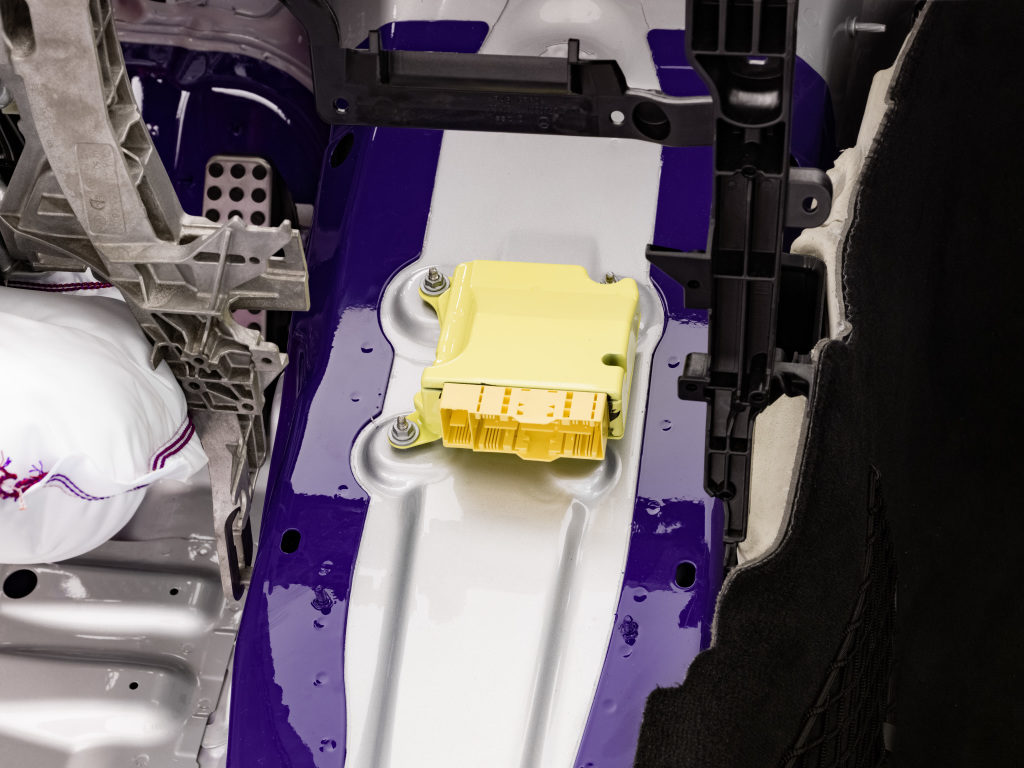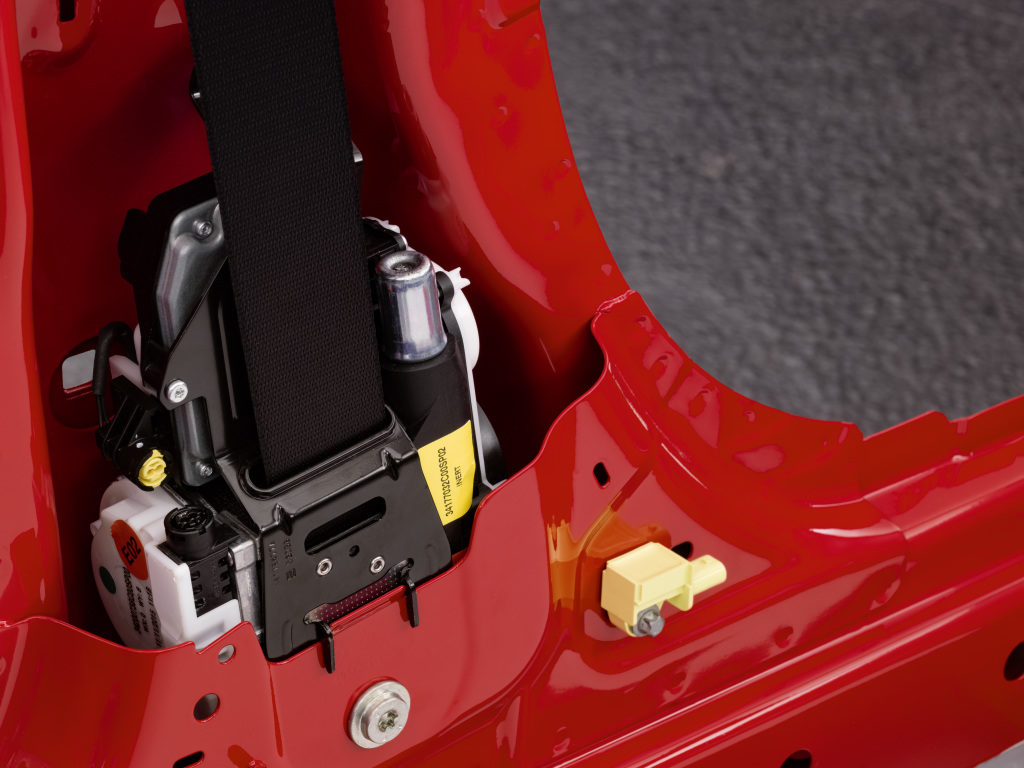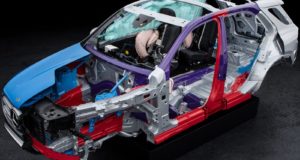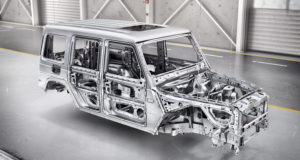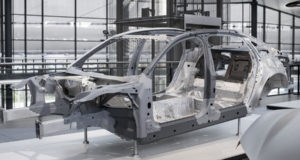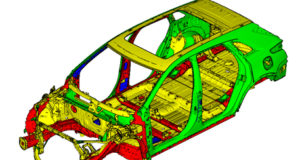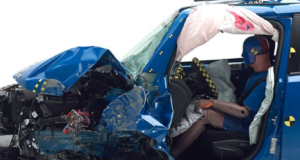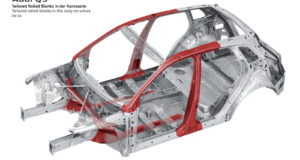Body Structure
Here is a side view into the passenger compartment of the 2017 Mercedes-Benz E-Class. Visible restraint systems include: driver kneebag, driver airbag and steering wheel, passenger airbag, PRE-SAFE® Impulse Side bladder implemented in the passenger seat, Thorax-Pelvis Sidebag front passenger, Windowbag, Rear Sidebag. The even have a yellow pressure sensor in the door module.
Front Seat Airbags
One unique airbag in the 2017 Mercedes-Benz E-Class is the PRE-SAFE® Impulse Side pyrotechnical bladder. Unlike the Thorax-Pelvis-Sidebag in the front seats, if an imminent side collision is detected, it moves the occupant as far away as possible from the acute danger zone before impact.
Beltbag
The Mercedes-Benz Beltbag system is relegated to rear seats only and powered by charged gas that inflates the strap to nearly three times its normal width, thus increasing the surface area across which to distribute the impact forces of a crash. Unlike the Ford system, Mercedes says only a frontal impact will trigger its belts to inflate, whereas the Explorer’s inflatable bags are triggered by both frontal and side impacts.
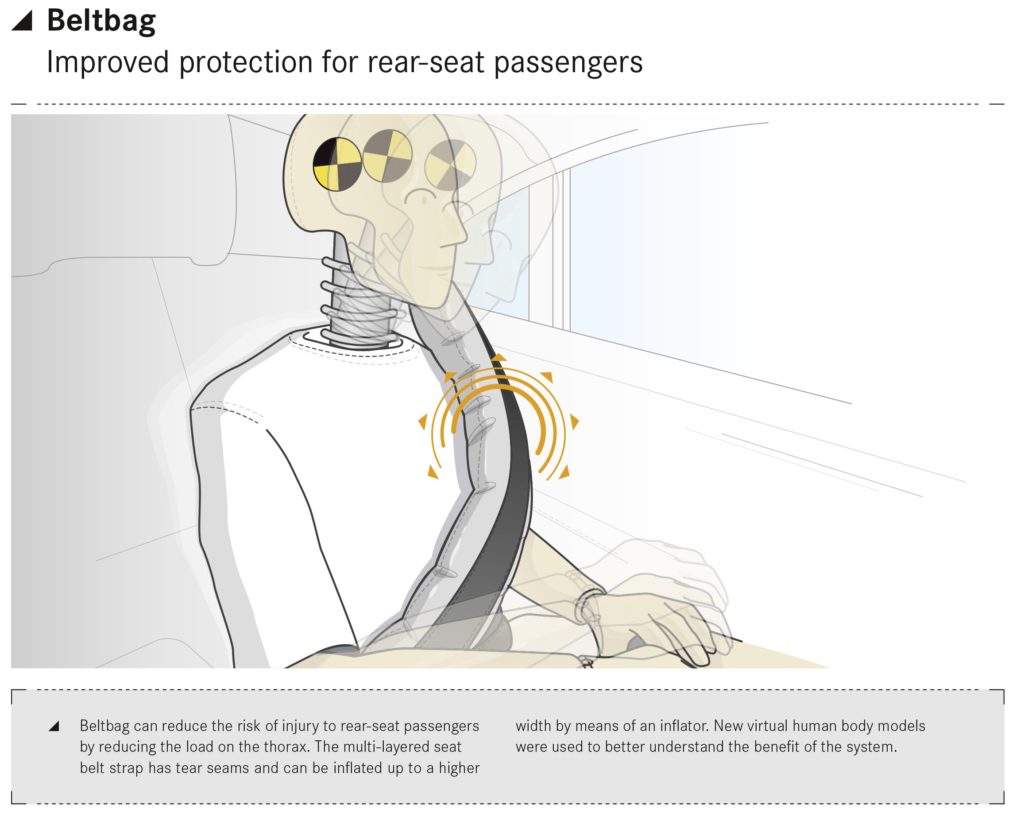
Make a mental note of the stored gas inflator location in the picture above and below. Unlike the Ford vehicles, the stored gas inflator in located on the outboard of the seat cushion.
Active Hood
For a head-on pedestrian-vehicle collision, in certain circumstances the rear section of the hood can be raised. The increased clearance from the components in the engine compartment creates additional deformation space to reduce the risk of injury to the pedestrian. Mercedes-Benz uses a pyrotechnically activated active hood for this system.
Airbags
Below are pictures of some of the 9 different airbags that are in the new Mercedes-Benz E-Class.
- Passenger Airbag (Dash/IP)
- Driver Airbag (Steering Wheel)
- Side Restraint Systems
- Driver Kneebag Airbag
- Rear seat airbag
- Airbag Control Module
 Boron Extrication An in-depth look into vehicle extrication and rescues involving today's automobiles
Boron Extrication An in-depth look into vehicle extrication and rescues involving today's automobiles
